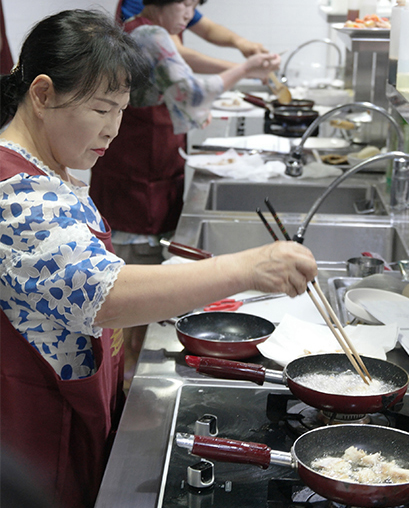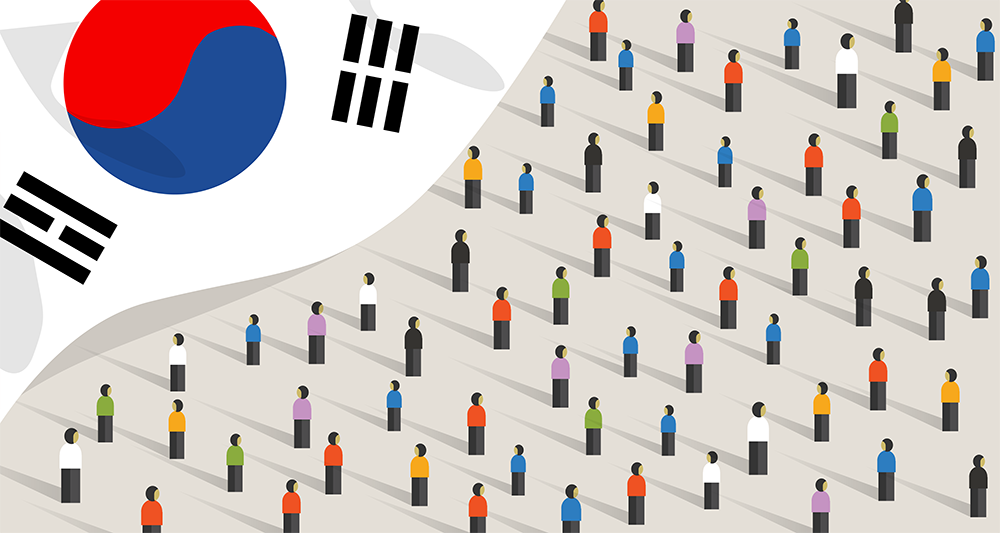The Korean peninsula has been divided between North and South Korea since 1953. In North Korea, about 18 million people out of the 25 million in its population experience serious human rights violations, economic struggles, food insecurity, malnutrition, and other health issues under the current regime.
Hoping to find life and a new beginning, more than 1,000 North Koreans flee from their homeland every year to South Korea for political, ideological, religious, economic, or other personal reasons. Today, an overwhelming 85% of the 33,000 North Korean defectors in South Korea are women (as of 2018). They have had to make a hard transition and adjust to a totally different society not only as women, but also as workers, students, and mothers.
Although defectors are welcomed and provided some government aid to settle in their new homes, it is still a constant struggle for North Korean women defectors to manage and establish their lives, let alone navigate South Korea’s complex system so different from the society they were raised in. The heartbreaking story that was reported in recent news, about late Han Seong-ok (and her 6-year-old son), illustrates how many women defectors have to fight every day to overcome the “vicious cycle” of finding stability and adapting financially, socially, and culturally. This is no easy feat.

North Korean women defectors taking cooking class together
“Familial relationships encompass the most intimate and enduring relationships of love, even more sacred than religion. This is why parents and family have tremendous influence in shaping a person’s character. We know all too well that someone raised in a family filled with peace, love, and mutual support is likely to have vastly different outcomes from someone who experienced abusive and self-centered relationships.”
The Korean Dream starts in the home and women are educators and role models who, when embodying the ancient Korean ethos of Hongik Ingan by living for the benefit of every family member and every human crossing the family’s path in life, can teach their children to learn this ideal and more likely embody it as they mature into adulthood.
Hongik Ingan is not something the government can mandate. It’s a way of life, already embedded in Korean history and society to some extent. A nation embodying Hongik Ingan is only possible if its citizens cherish and embody this ideal in their daily lives. And according to Dr. Moon, the family unit is the most natural place to learn and practice this ideal.

GPW shares about the Korean Dream at the 2019 Chuseok Festival
GPW’s ongoing work has included developing and coordinating women’s leadership workshops, helping and connecting with North Korean women defectors through service projects (e.g. making kimchi together), initiating projects for income generation, mentorship, job training, and technical skills development programs (e.g. flower arrangement classes, cooking classes), and creating and organizing cultural, sports, education, and health programs (e.g. annual table tennis festivals).
Inspired by the intergenerational effort to help those affected by the tragedy on the Korean peninsula, one volunteer said, “It was beneficial to have people of many age groups, some young and some elders, volunteering in our tabling activities to engage with so many people at different levels.”
GPW continues to develop awareness campaigns and creating programs that allow North Korean women defectors’ to build a better quality of life while achieving the Korean Dream.
The original post appears on Global Peace Foundation. Global Peace Foundation is an international non-sectarian, non-partisan, nonprofit organization, which promotes an innovative, values-based approach to peacebuilding, guided by the vision of One Family under God. GPF engages and organizes a global network of public and private-sector partners who develop community, national, and regional peace building models as the foundation for ethical and cohesive societies. Dr. Hyun Jin Preston Moon is founder and chairman of the Global Peace Foundation.

